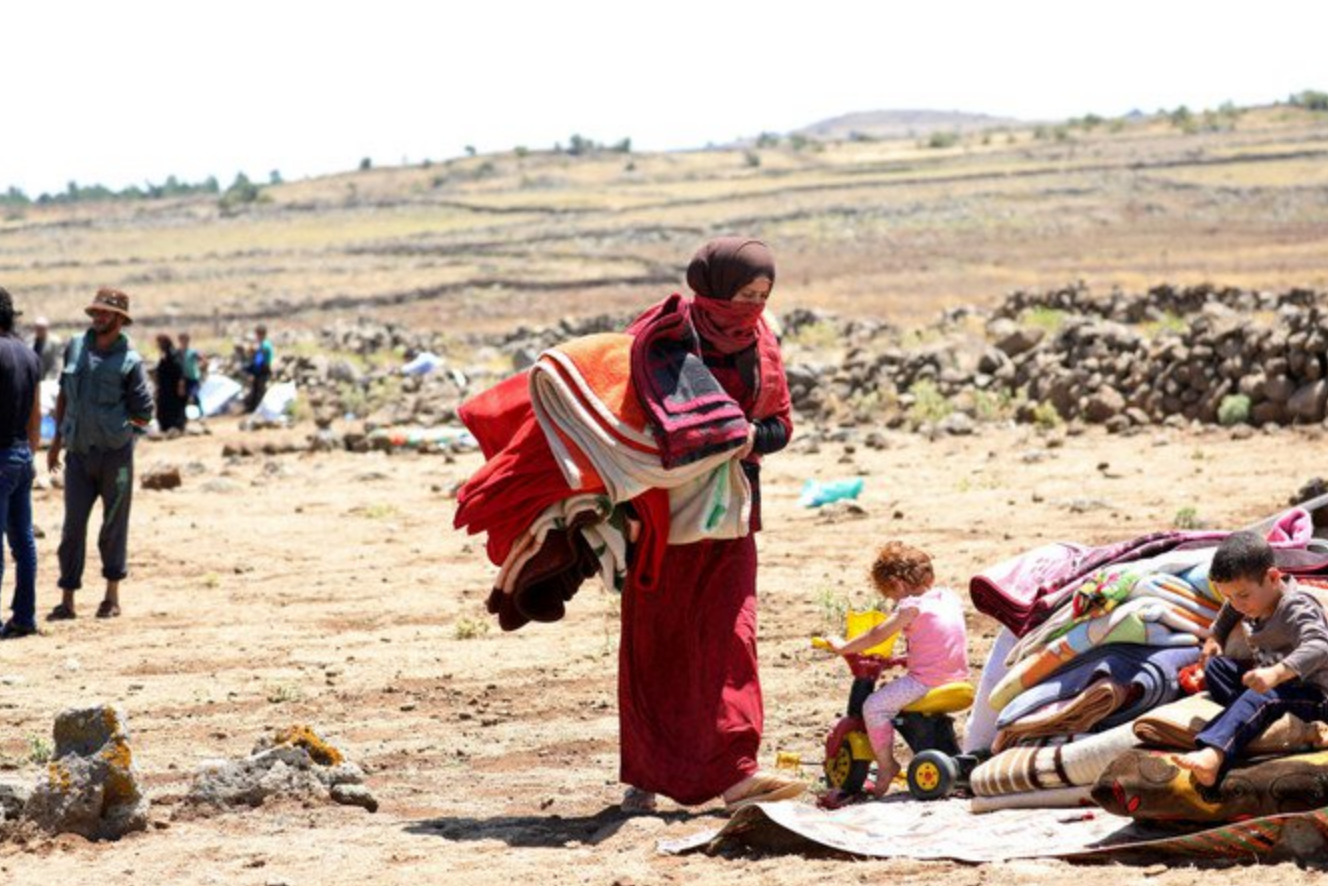Relentless war puts Syria among most dangerous countries for women — poll
Arab News, June 26, 2018
While
international attention was focused on the “horrific” crimes committed by
Daesh, the biggest threat to women was from the Syrian regime. But the UNFPA’s
Jennifer Miquel said Syrian women and girls should not be seen simply as
victims
 |
| An internally displaced woman from Deraa province in Syria holds blankets near the Israeli-occupied Golan Heights. The poll ranked Syria second worst behind Afghanistan for the risks women faced from non-sexual violence and for access to health care. (Reuters) |
LONDON:
Seven years of war have turned Syria into one of the world’s most dangerous
countries for women, according to a global poll released on Tuesday, with
experts sounding the alarm over rising child marriage, domestic abuse and
sexual exploitation.
Syria,
which ranked third behind India and Afghanistan, did not feature in a similar
poll conducted by the Thomson Reuters Foundation in 2011, the year the conflict
broke out.
“I’m very
afraid of being one of the last educated women in my country,” said Maria
Al-Abdeh, executive director of Women Now For Development, which supports
women’s centers in Syria.
“I’m
witnessing a new generation who have no access to education, to economic
opportunities, to law or to sexual health,” added Al-Abdeh, who has lost
colleagues in the war.
Half a
million people have been killed in the conflict and half the population have
fled their homes.
But bullets and barrel bombs are far from the only dangers.
But bullets and barrel bombs are far from the only dangers.
“Sexual
violence has been used with impunity,” said Al-Abdeh. “There is a complete
absence of any rule of law.”
Laila
Alodaat, of the Women’s International League for Peace and Freedom, said while
international attention was focused on the “horrific” crimes committed by
Daesh, the biggest threat to women was from the Syrian regime.
“Although
various actors in the conflict have used sexual violence, regime forces have
used it as a weapon of war both to torture women and to terrorize wider
populations,” said Alodaat who left Syria in 2011.
UN
investigators said in March that the use of rape and other sexual violence
during ground operations, house raids, at checkpoints and in detention
constituted war crimes and crimes against humanity.
Experts
said women were also being sexually exploited by men delivering aid for local
and international charities and higher numbers were abused at home as violence
became more pervasive.
The poll
ranked Syria second worst behind Afghanistan for the risks women faced from
non-sexual violence and for access to health care, and joint third worst on
sexual violence.
The poll
asked 548 experts in women’s issues which five of the 193 United Nations member
states were most dangerous for women and which was worst for health care,
sexual and non-sexual abuse, economic resources, cultural practices, and
trafficking.
“There’s
definitely a normalization of violence,” said Jennifer Miquel of the UN
Population Fund (UNFPA) who coordinates humanitarian efforts to tackle
gender-based violence in Syria.
“It’s not just about the frontline, it’s also about how violence has entered the home.”
“It’s not just about the frontline, it’s also about how violence has entered the home.”
Aid
workers said rising poverty and fears of sexual violence were fueling a rise in
child marriage with reports of girls as young as 11 being married but no
official data on numbers.
Struggling
families were marrying off daughters early for financial reasons and hoping it
would protect them.
Campaigners
say early marriage limits girls’ education and increases the risks of domestic
abuse and death in childbirth, particularly with limited access to health care.
“We have witnessed women dying in childbirth or having Caesareans without
anesthetic because they don’t have access to hospital due to heavy bombing, or
because the hospital has been destroyed,” Al-Abdeh said.
But the
UNFPA’s Miquel said Syrian women and girls should not be seen simply as
victims.
With many men killed, injured or absent, experts estimate one third of households are now headed by women.
“We cannot just see women as complete victims in all this — they are certainly agents of change as well,” said Miquel.
“There are many empowered and dynamic young women who I believe will be contributing to the future of Syria.”


